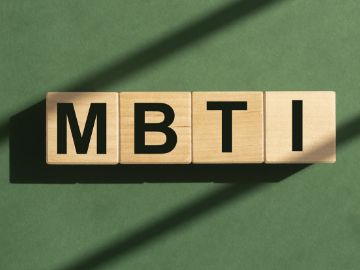What to Include in Your Resume's Work Experience Section

Your resume is your face in a job search. Nailing the formatting is vital, but it can be difficult to get the right structure. Work history gives an applicant credibility and demonstrates whether they will qualify for a position, or not. The rest of the resume should complement and strengthen the work history. There are things you must include, things you should leave out, and specifics that employers want to see.
What Work History to Include
Prioritize the order you present your resume information in. Remember that the person looking at your resume won't spend too long on it. The average time recruiters spend looking at a resume is 6-13 seconds. Yep, you read that right - seconds. Therefore, you must present your work experience clearly and preferably before other information.
The most common resume layout is reverse chronological order by date, with the most recent experience first. The basic necessities include:
- Job Title
- Company Name
- Location
- Month and Year Started
- Month and Year Left
Following these, you need to describe your responsibilities and achievements. My most trusted rule of thumb is show don't tell. This applies to a lot of things in life, and it should definitely be your approach to writing a resume.
Basic job responsibilities are assumed, especially when the person reading your resume is already experienced in the industry. Leave them out. Explain your achievements instead. Demonstrate your initiatives and innovative ideas in that position. Show how your commitments lead to sales growth, cost reductions, and company expansion.
After years of work, you'll have an array of skills and experience to boast about. A recruiter doesn't want to know about them all. Choose the ones that are relevant to the position you're applying for. Start your bullet points with strong verbs rather than relying on adjectives to back you. Always relate the work history back to the job you're applying for.
What About Recent Graduates?
If you've just graduated, you don't have much to show in terms of work history. Look for job-relevant experiences in your studies and extra curricula activities. Your education gives you a certificate, but it doesn't guarantee you a job.
Consider all the certificates achieved, conferences attended, and volunteer or internship positions you were involved in. Treat them as jobs and follow the above rules for how to write about them. These experiences demonstrate your soft skills and recruiters can use them to identify your professional abilities.
Leave It Out
Certain things just don't belong on a resume. The person reading your resume wants to know about you. They also want to read all relevant information quickly to decide whether you're worth considering. A resume needs to be concise but rich.
Don't talk about your past employment's organization information. If your employer cares about another company's mission, they'll either already know about it or they'll ask about it in an interview. Your resume is selling you.
Remember, the point of a resume is to get an interview. Dwelling on things that don't matter for this particular job is not going to help you.
Don't waste space by stating the obvious. If you were a kindergarten teacher, it goes without saying that you were responsible for children. State how many students you had, what behavioral difficulties you came across and how you overcame them, or the subjects you taught and what teaching methods you applied. Details like these are what will make you stand out from other applicants.
If you've got more than 10-15 years of experience, it's best not to mention work beyond those years. You've already got a lot to mention on a document that isn't usually longer than two pages. Firstly, a recruiter probably doesn't want to read about every job you've ever had. Secondly, they most likely don't use the methods and software used 15 years ago anymore. Focus on jobs that are relevant and demonstrate your skills best.
Satisfying the Recruiters
There are specific things that a recruiter is looking for in a resume, and that's only after it has successfully passed the keyword filtering system. With such a competitive current job market, you want to stand out.
Keywords will usually be filtered by software before your resume even reaches anyone. If successful, the recruiter will also be scanning for their mention. This demonstrates that you took your time tailoring your resume to the position. Do your research and describe your work history including keywords from the job description and company website.
Career continuity is important. Employers want to be reassured that you won't quit after a short term. However, job hopping is more acceptable now as people choose to take more adventurous and rewarding paths in life. Perhaps you needed a hiatus in Bali to recharge your mental health, or maybe you volunteered in India for a year to gain soft skills. Be prepared to explain why it was necessary and how it benefits the position you're applying for.
The most important thing that recruiters need to see is quantitative proof! By how much did you grow your organization's online presence? What percentage of conversion did you achieve? Employers want to know that you're not only capable of completing a responsibility, but that you can improve and grow the results.
Review Your Resume
Now that you've read this article, review your resume. Does your work history include quantitative proof? Make sure you're not mentioning irrelevant past responsibilities. Replace your excess adjectives with strong verbs. You want your resume to be the best representation of you.



